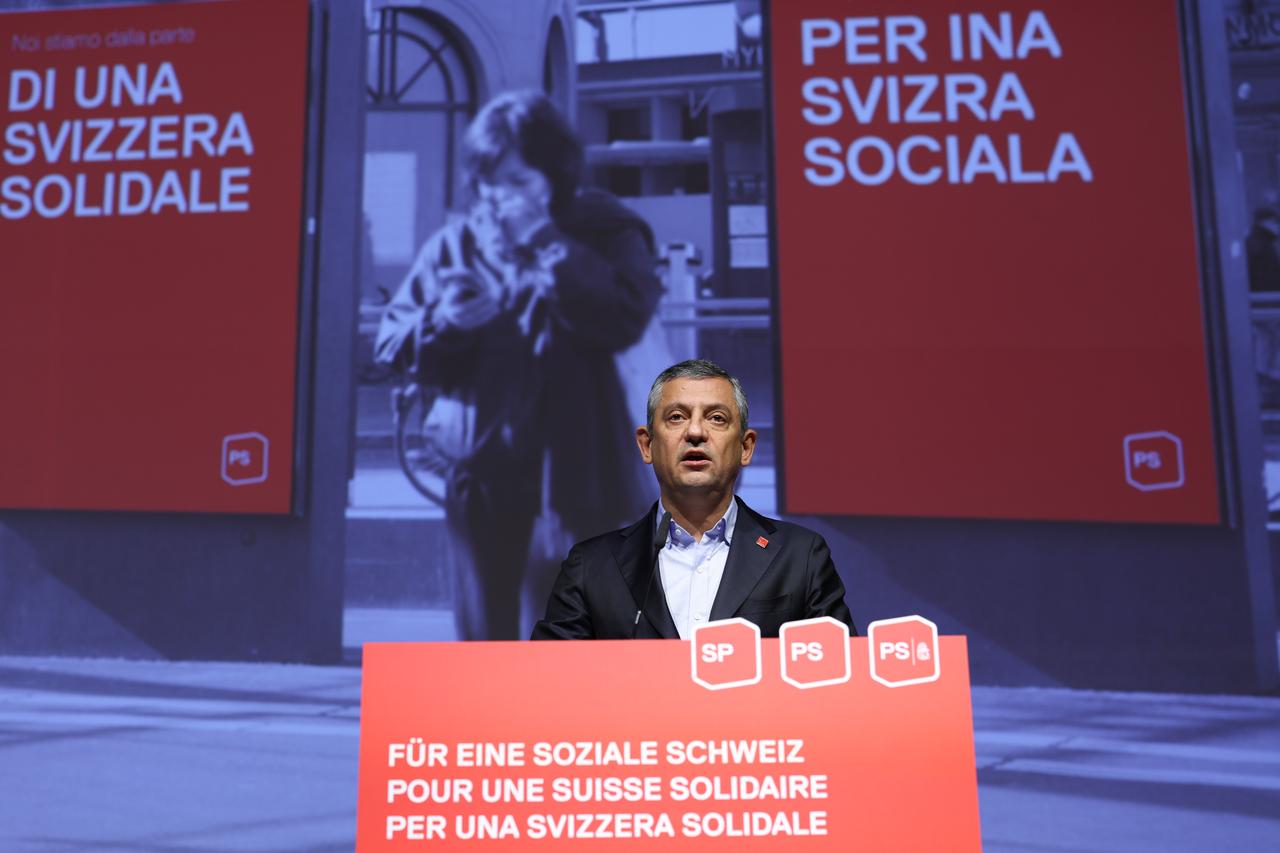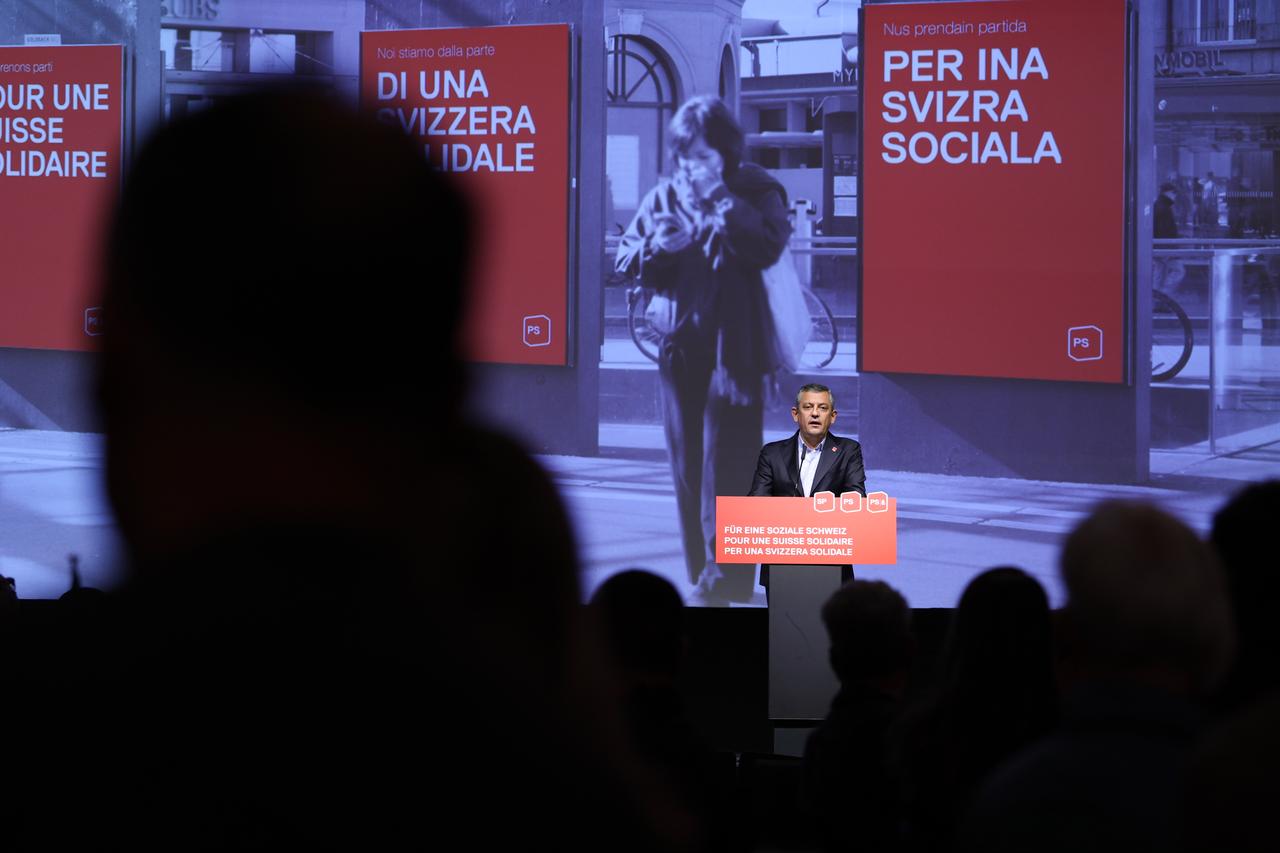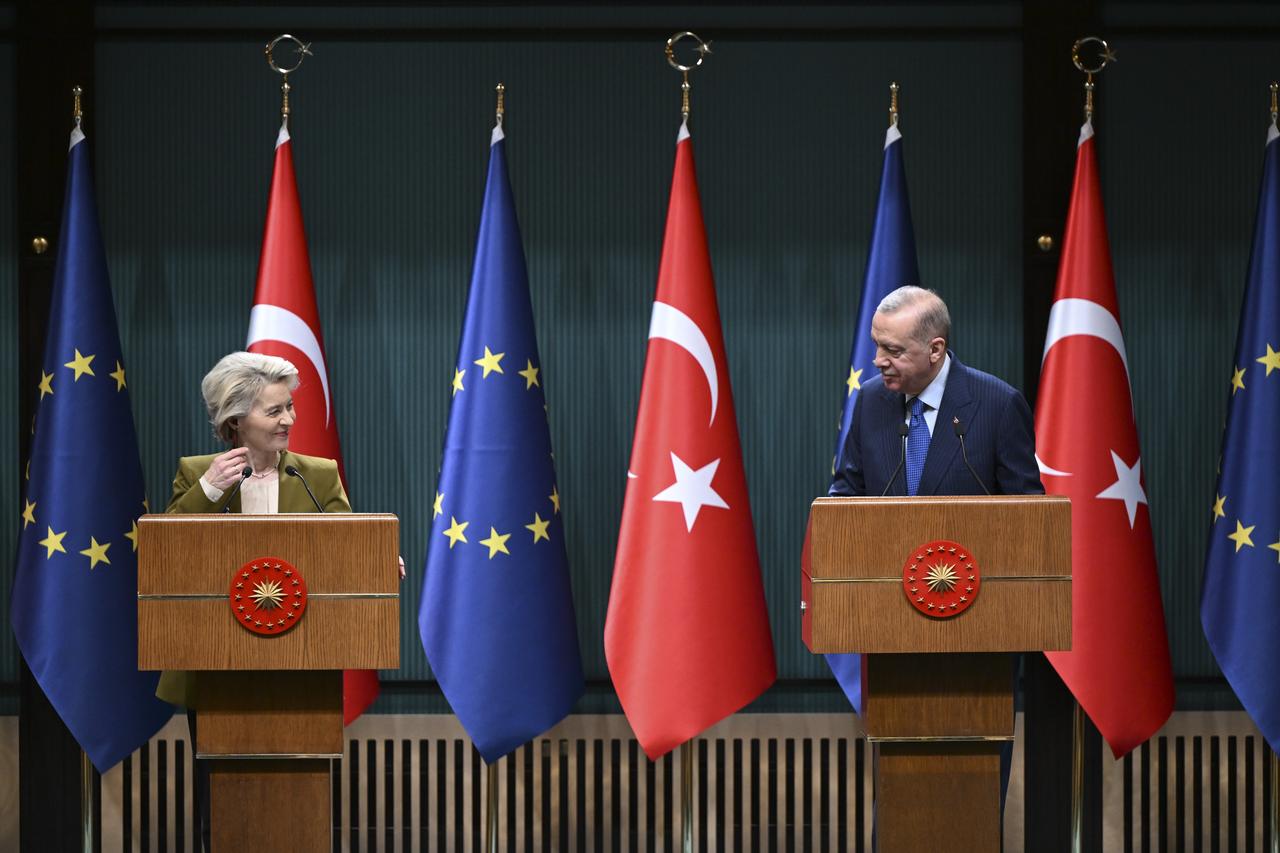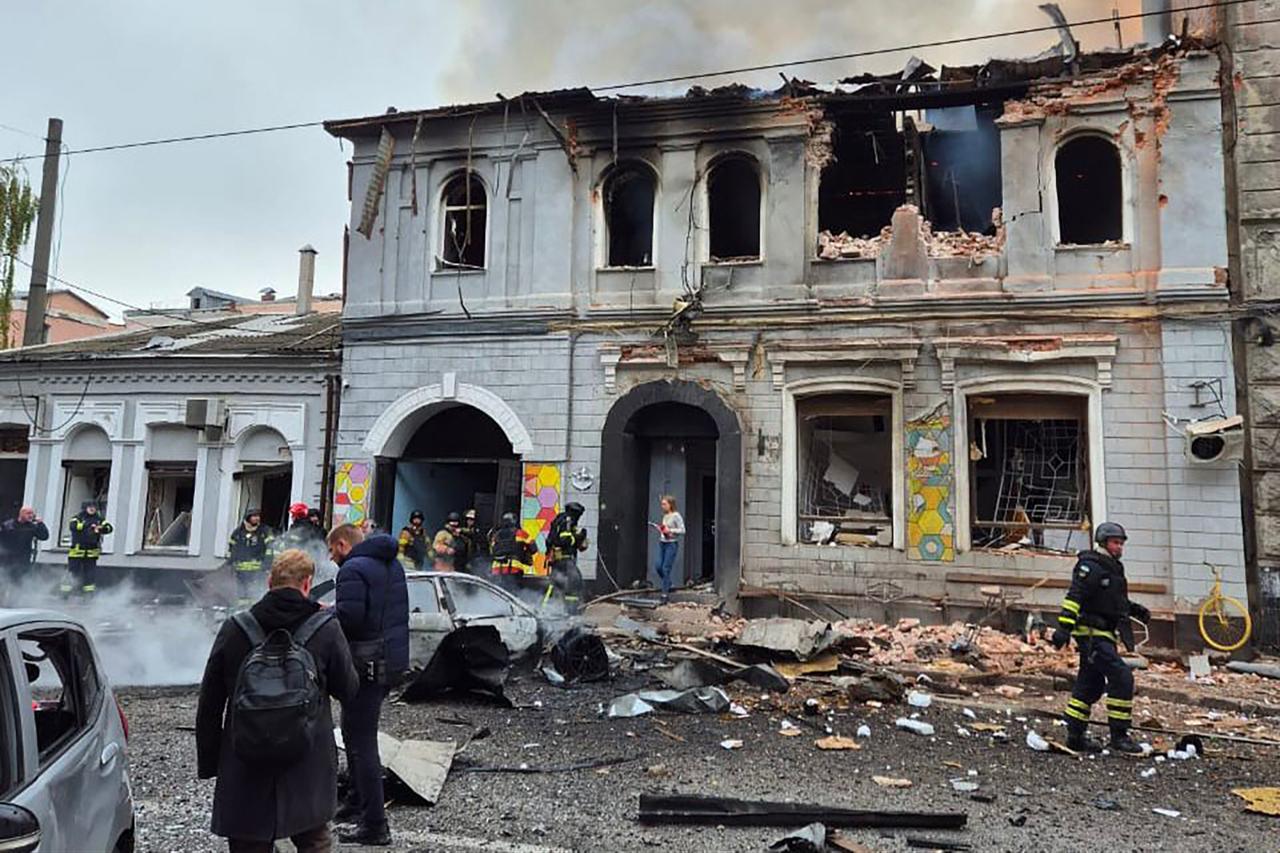
The leader of Türkiye's main opposition Republican People's Party (CHP), Ozgur Ozel, stated on Saturday that Türkiye cannot be overlooked when constructing a new security architecture for Europe, speaking to delegates at the Swiss Social Democratic Party's congressional gathering in this Alpine city.
Ozel, chairman of the CHP, addressed the Swiss party's congress and stressed the interconnection between Turkish and European security, calling for Türkiye "to be treated as an equal partner in regional security frameworks rather than merely a security guarantor."
"It is impossible to disregard Türkiye when creating a new security architecture for Europe," Ozel said at the congress in Lucerne.
"These two scenarios inevitably raise an important question in the minds of our European friends: democracy or security? We conduct politics with the awareness that democracy has fundamental importance not just for one country, but for the entire world. At every opportunity, we emphasize the importance of global solidarity for democracy," he added.

Ozel expressed satisfaction at being in Switzerland, where the Treaty of Lausanne and the Montreux Convention—both foundational agreements in establishing modern Türkiye—were signed.
The CHP leader underscored that Türkiye's and Europe's security are closely interconnected and that Türkiye should be viewed as a natural part of Europe rather than solely as a security actor.
"Europe's and Türkiye's security is closely linked," Ozel stated.
"We see Türkiye as a natural part of Europe. We support full membership in the European Union. Within the framework of European security architecture, we are equal-rights partners," he noted.
Ozel emphasized that the relationship between Türkiye and Europe should be conducted on the basis of principles and rejected the notion that Türkiye should be viewed only as a security guarantor.
"We reject Türkiye being seen only as a security guarantor. We argue that relations between Türkiye and Europe should be conducted based on principles," Ozel noted.

Ozel acknowledged the close connection between stability and security while emphasizing that neither is possible without democracy.
"We are aware of the close connection between stability and security. However, we emphasize that both are impossible without democracy," Ozel stated.
The CHP leader highlighted the importance of the European Union as an institution that has embraced universal democratic principles and said, "CHP fully supports these universal democratic values."
"When we speak of Europe, we mean a region of which we are also a part. When we speak of Europe's security, we are speaking of our own security—the security of all of us," Ozel said.
Ozel referenced the security concerns in Europe prompted by the war in Ukraine while also emphasizing Türkiye's commitment to ending all wars and conflicts.
"We see significant security concerns in Europe due to the war in Ukraine," Ozel said, adding, "We are working with determination to bring an end to all wars and conflicts, particularly in Ukraine and Palestine."
Ozel stressed that Europe and Türkiye share mutual security interests in addressing regional instability and that cooperation based on democratic principles should guide their relationship.
The CHP leader's remarks represent a formal opposition party position on Türkiye's role in European security architecture, emphasizing democratic governance and equal partnership rather than military positioning alone.

Following his address to the congress, Ozel met with Swiss Federal Council member and Interior Minister Elisabeth Baume-Schneider to discuss bilateral relations and regional security matters.
Ozel also held discussions with Cedric Wermuth, co-chairman of the Swiss Social Democratic Party, and his delegation in Lucerne.
Later, Ozel met with Sibel Arslan, a member of parliament from the Swiss Green Party, according to statements from the CHP.
The CHP leader's visit to Switzerland and his address to the Swiss Social Democratic Party congress mark a significant diplomatic engagement with European center-left political movements at a time of heightened European security concerns.